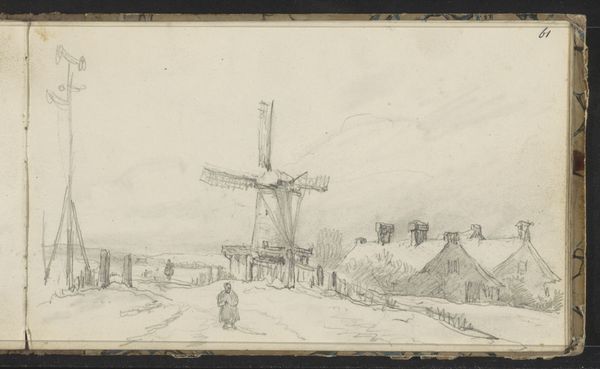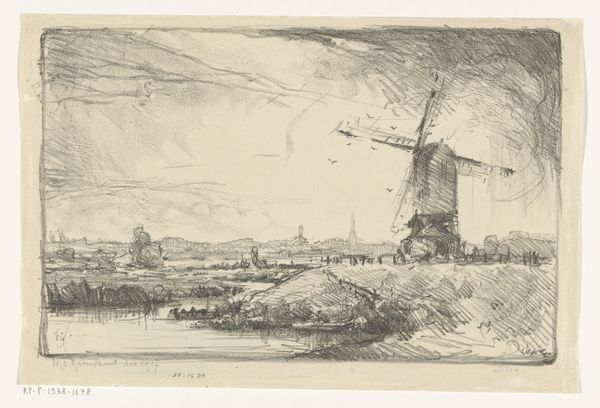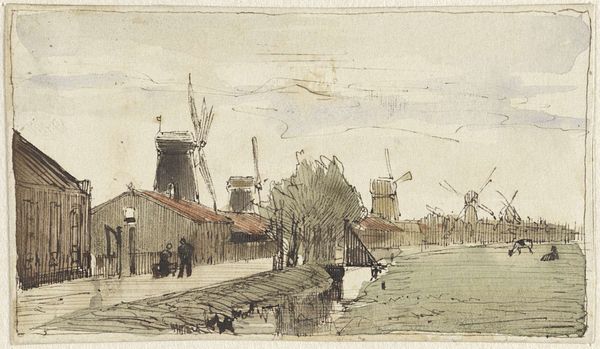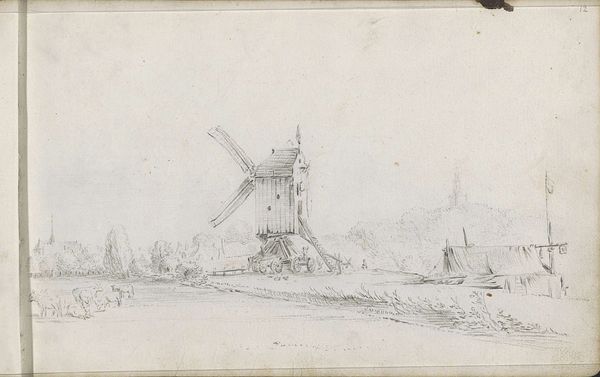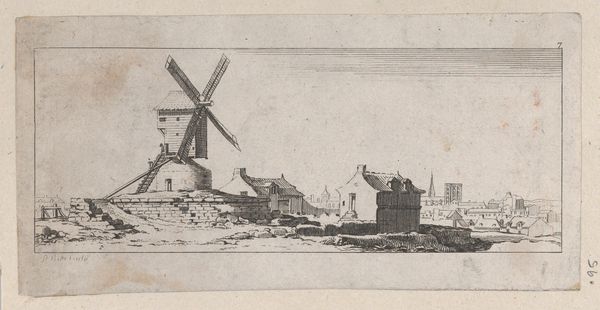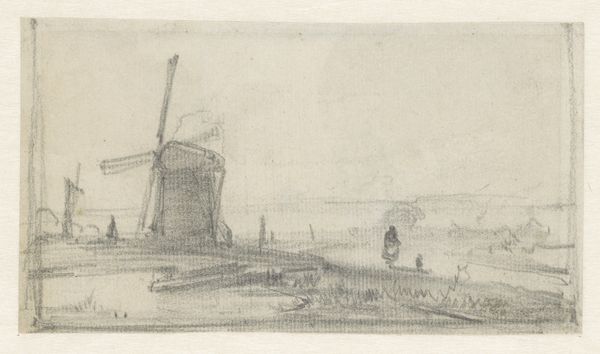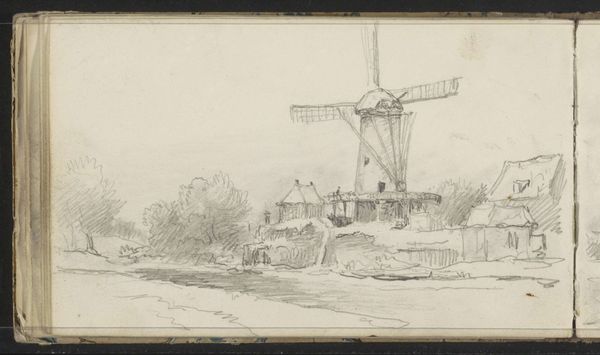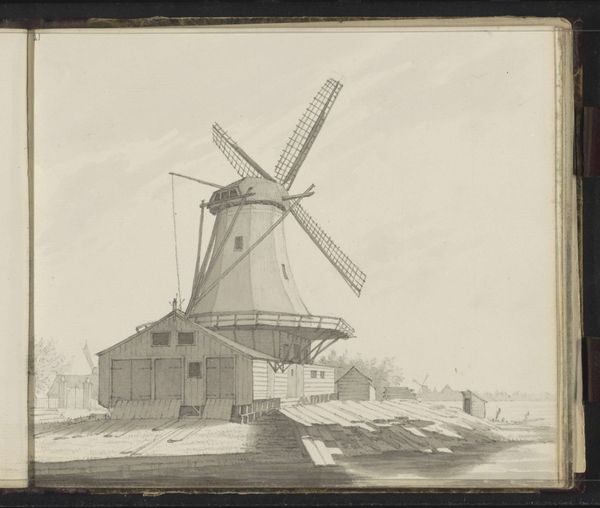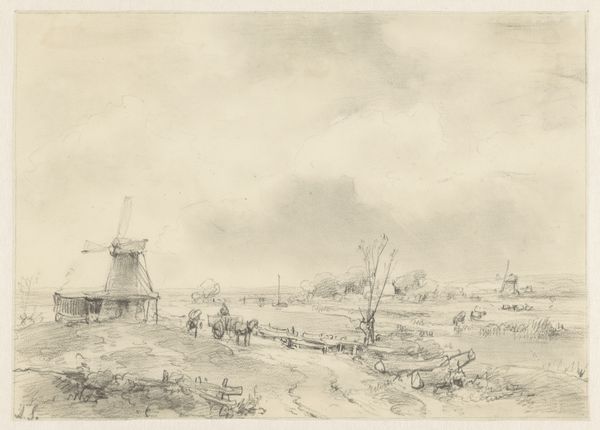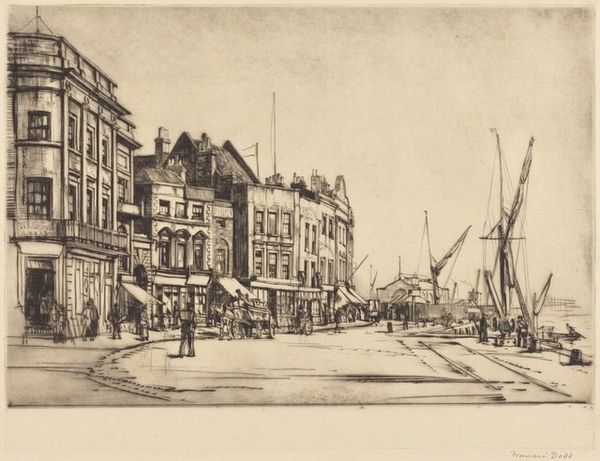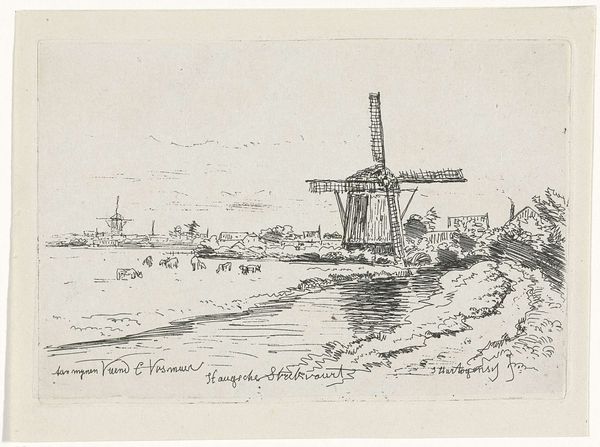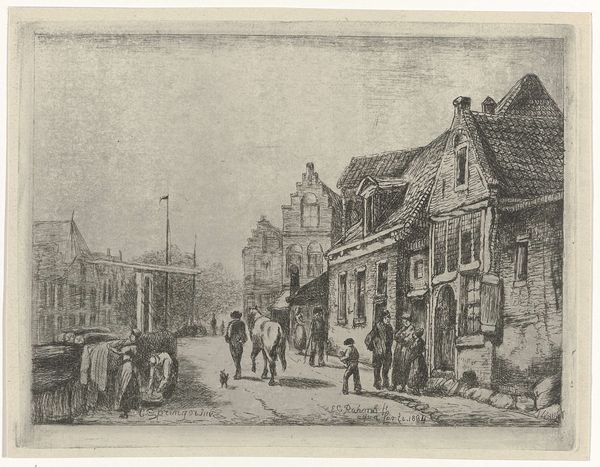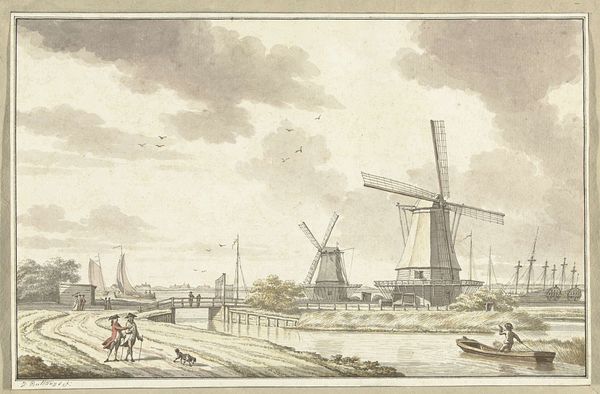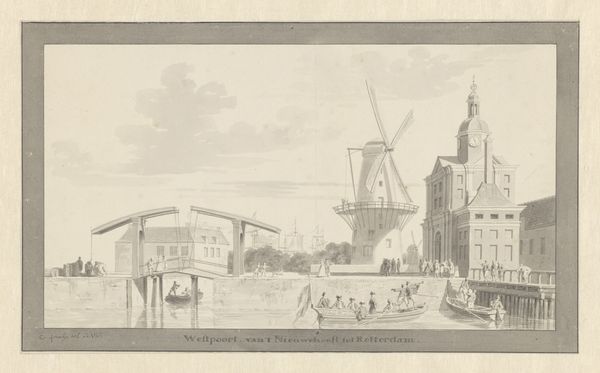
View of the Bulwark De Westerbeer, with the Mill De Beer, near the Haarlemmerpoort, Amsterdam c. 1650
0:00
0:00
roelantroghman
Rijksmuseum
drawing, pencil
#
drawing
#
dutch-golden-age
#
landscape
#
form
#
pencil
#
line
#
cityscape
#
realism
Dimensions: height 203 mm, width 318 mm
Copyright: Rijks Museum: Open Domain
Roelant Roghman captured this view of Amsterdam with graphite and gray ink. The windmill, a defining feature of the Dutch landscape, stands as a potent symbol. These mills were not merely functional; they represented Dutch ingenuity and prosperity, harnessing the wind's energy to power their economy. The prominence of the windmill here echoes the importance of such machinery in the collective Dutch psyche. Think of Don Quixote tilting at windmills, casting them as giants. Here, the windmill is no such threatening figure, but a symbol of progress and ingenuity. The windmill has appeared throughout art history in various guises; in one, it has come to suggest power. As you consider this drawing, remember that symbols are never static; they evolve, accruing layers of meaning with each passing age.
Comments
No comments
Be the first to comment and join the conversation on the ultimate creative platform.
